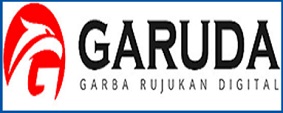Hubungan Sikap Kerja dengan Myofasial Trigger Poin Upper Trapezius Pada Pekerja Komputer Di Kecamatan Kartasura Kabupaten Sukoharjo
DOI:
https://doi.org/10.31004/jn.v8i1.20847Abstract
More than 1.5 billion students in higher education reported experiencing academic anxiety in April 2020. Personal control is essential to control academic stress, thereby fostering academic achievement. the direction of this research is to define the relationship between academic stress and academic self management in VIII semester undergraduate nursing students. the review study technique uses descriptive quantitative with a cross-sectional approach. The sample used was 79 samples obtained using the technique (total sample). The measurement tools used are Student-life stress inventory (SLSI) and Academic self-management. Data assessment using Rank spearman with a significant level (p-value) 0.05. Results: In the acquisition of research obtained there is no link between academic stress in students with academic self-management of 8th semester, undergraduate nursing students. from the acquisition of data assessment and calculation in this review study it can be concluded that the level of academic stress in final year students at Karsa Husada Health Science College Garut, the majority of informants in the low category, Academic Self-Management of students when preparing a thesis, the majority of informants at a moderate level, and Academic stress levels and academic self-management skills are unrelated in 8th semester undergraduate nursing students writing a thesis.Downloads
Published
2024-02-05
How to Cite
Rasyidi, A., & Herawati, I. . (2024). Hubungan Sikap Kerja dengan Myofasial Trigger Poin Upper Trapezius Pada Pekerja Komputer Di Kecamatan Kartasura Kabupaten Sukoharjo. Jurnal Ners, 8(1), 564–569. https://doi.org/10.31004/jn.v8i1.20847
Issue
Section
Articles
License
Copyright (c) 2024 Jurnal Ners

This work is licensed under a Creative Commons Attribution-ShareAlike 4.0 International License.
Authors who publish with this journal agree to the following terms: Authors retain copyright and grant the journal right of first publication with the work simultaneously licensed under a Creative Commons Attribution-ShareAlike 4.0 International License that allows others to share the work with an acknowledgement of the works authorship and initial publication in this journal. Authors are able to enter into separate, additional contractual arrangements for the non-exclusive distribution of the journals published version of the work (e.g., post it to an institutional repository or publish it in a book), with an acknowledgement of its initial publication in this journal. Authors are permitted and encouraged to post their work online (e.g., in institutional repositories or on their website) prior to and during the submission process, as it can lead to productive exchanges, as well as earlier and greater citation of published work (See The Effect of Open Access).







